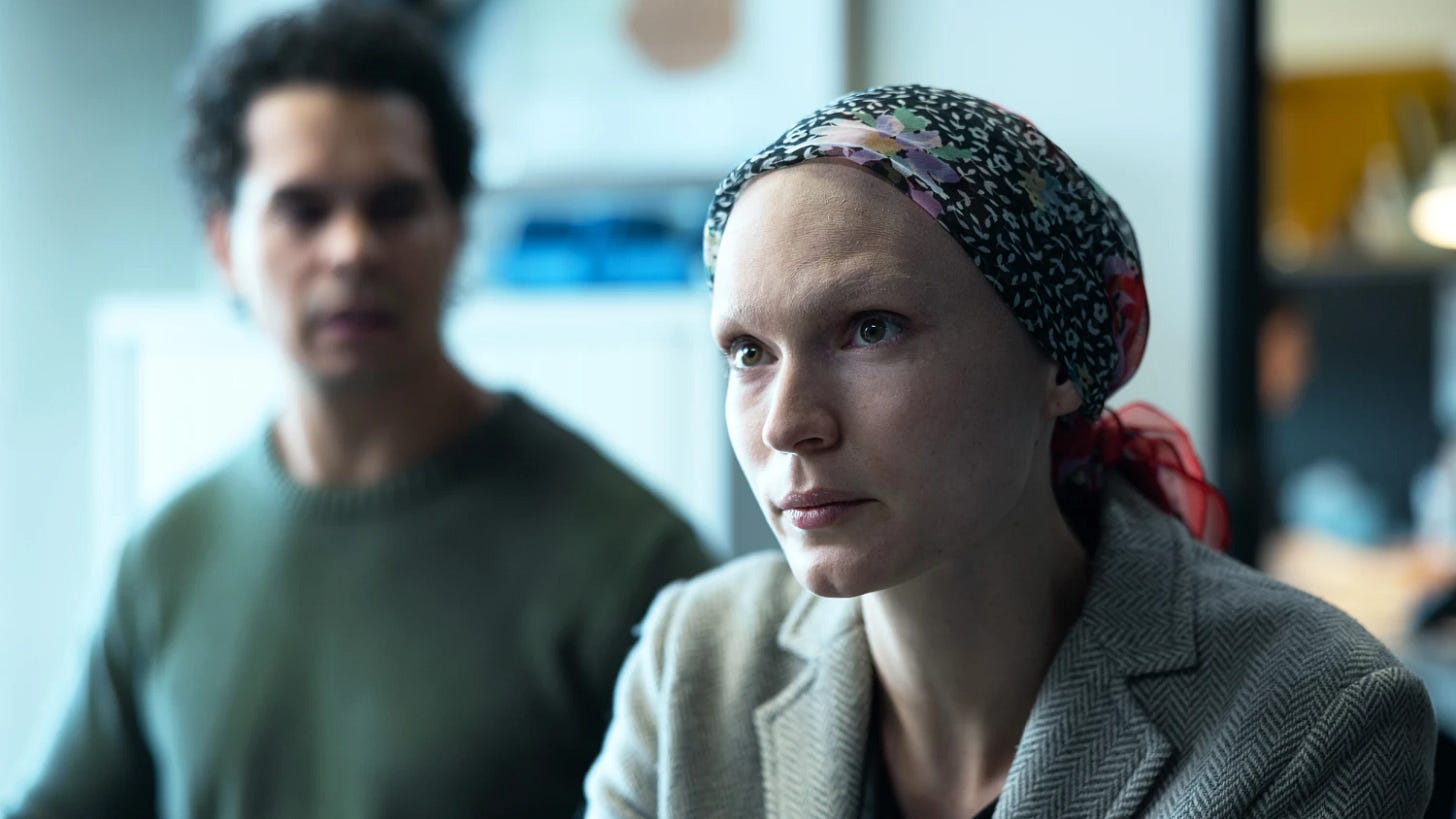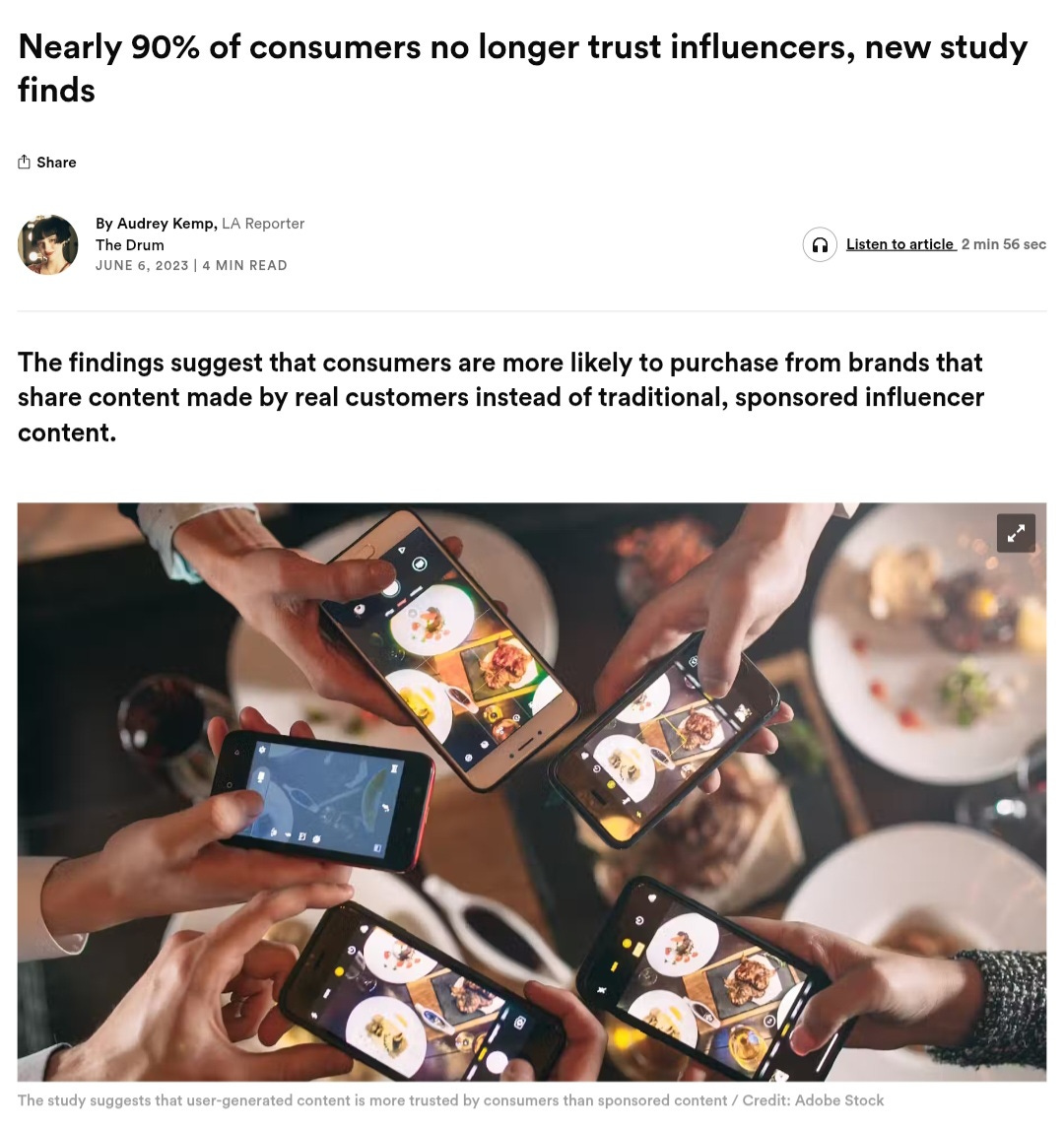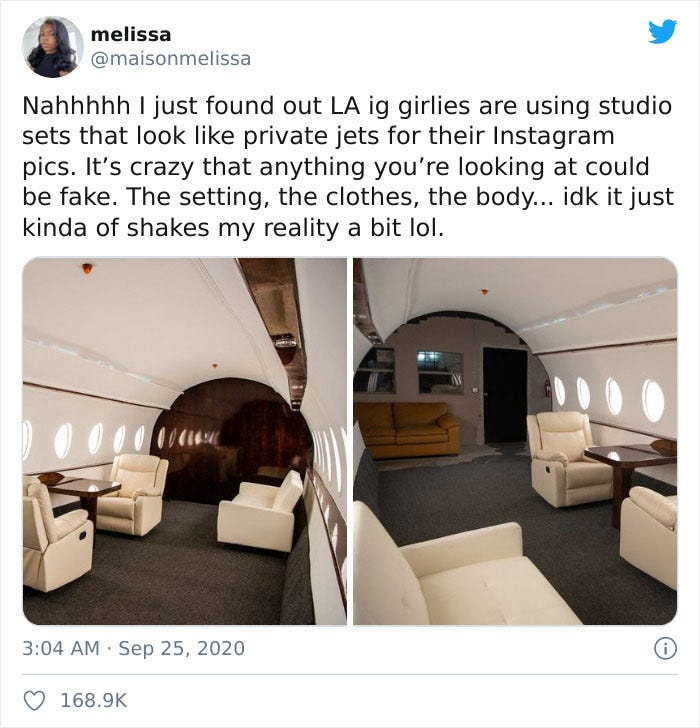the weekly scrapbook is a collection of thoughts, reflections and experiences on what it means to navigate modern life. want to know more?
you can have a 7-day trial to get a paid subscription by clicking this link 💖
I finished watching Apple Cider Vinegar on Netflix just two days ago, and I haven't stopped thinking about it since. For those who don’t know, it’s a mini-series based on a true story.
It follows the life of Belle Gibson, a wellness influencer from the 2010s who fooled everyone into thinking she had cancer.
Not only that: having cancer became her brand, and she monetized it. After relentlessly dragging the modern medical system, she claimed to have cured herself simply by eating clean and living holistically.
She launched an app that was bought by Apple, and it was downloaded 200,000 times within its first month. She published a book filled with healthy recipes with Lantern Books, an imprint of Penguin Books. She built an entire career out of a lie—and became a millionaire for it.

(Note: I truly recommend watching this mini-series. If you want to know more about Belle Gibson’s real story, you can read this BBC article about it).
But that wasn’t even the worst part. The worst part was some people who did have cancer—people who were vulnerable, scared, and searching for alternatives to traditional treatment—believed in her.
Some of them abandoned their medical care because of Gibson. And they put their lives at risk because of a woman who had been lying all along.

Do you know what this series made me think of? Not Okay, a more satirical—and purely fictional—movie that follows the story of Danni, a cringe-worthy wannabe influencer who fakes a trip to Paris and fakes being a victim of a terrorist attack in order to gain sympathy and Internet fame. With no remorse at all, she tries to build a career off of collective trauma.
And before anyone comes for my neck, yes, I know. I am aware that not every influencer is a pathological liar.
Belle and Danni’s cases are obviously extreme—but both pieces of media do an incredible job of capturing an existing archetype: the attention-hungry influencer who would do anything for a few more likes.
And this is the kind of person I want to talk about.
To be honest, I have always found influencer culture fascinating. It’s wild to me how an individual can market themselves to be consumed by an audience, how they can turn their personality into a brand and get paid for it.
Because when you are the brand, you are also the thing being consumed. And people like consuming what feels relatable, what feels close.
That’s why there is a shift that happens when a creator suddenly blows up. It’s the cruelest paradox: the same fame and money they earned by being relatable and connecting with their audience starts to pull them further and further away from it.
Because how is a regular person supposed to relate to someone who lives in a million-dollar Manhattan apartment, like Haley Kalil (aka haleyybaylee)? No matter how many times she says she is ‘not elite enough’, people aren’t buying it anymore…Simply because they can’t see themselves in her anymore.
It’s the influencer paradox.
The only person I’ve seen beat it is Emma Chamberlain. Somehow, she still manages to come off as relatable, even when her net worth is, according to Celebrity Net Worth dot com—not the most reliable source, I would say—estimated at 30 million dollars.
She’s honestly the only major influencer I still like. I think that, besides her personality, it’s because she now has a solid foundation in the industry, so she can afford to let her audience take breaks from her.
She’s not chasing the algorithm in desperation, because she knows, as we all do, that audiences can smell desperation.

But what happens to the people whose main source of income is social media?
When they are faced with the influencer paradox, they only have two options: to drown in the algorithmic sea and get lost among the endless stream of new creators, or to reinvent themselves, building a lie so compelling that it becomes the new foundation of their career.
I mean, it’s no surprise that many influencers lie. We’ve known that for a while now. From bought followers to staged photoshoots, fake fights, or PR relationships—we’ve seen it all.
Breaking into the influencer industry isn’t easy, so people do whatever it takes to chase that dream lifestyle filled with brand deals and luxury trips.
You can see this perfectly illustrated in the HBO documentary Fake Famous. As an experiment, the producers pick a few random people and decide to make them ‘famous.’ Their strategy? Buying fake followers, fake likes, and faking locations.
They create an entirely staged life that doesn’t exist. The worst part? Some brands don’t even care whether you are really famous or not. If the numbers look good, you are in.
And these random people who started as fake influencers start getting real opportunities and real money, all based on a lie.
Have you ever thought about all the lies we’re constantly fed and all the ads that are disguised as regular, everyday content?
Because, as Madisyn Brown says in one of her latest videos, in a digital world ruled by the algorithm, ‘we are watching ads as entertainment’. And some of these ads are not exactly what I would call honest, if you know what I mean.
From the Kardashians selling Flat Tummy Tea—even though it has laxative effects that can lead to dehydration and malnutrition—to all the TikTokers who admitted to lying to their audiences right before they thought the app would be banned in the U.S. (which, by the way, didn’t even last a day), there’s no shortage of examples.
The creator Salem Tovar has an amazing video talking about this. She discusses how several influencers admitted to lying to their followers about their eating habits and fitness routines, for example.
Mukbang creator Baby Dumpling was one of them, admitting she didn’t actually eat all the food shown in her videos. But when the ban was lifted, she came back and said it was all a joke, and that she couldn’t believe everyone took it seriously. Lol.
One of the most concerning things to me are the fitness influencers who admitted that their workout videos weren’t genuine. Turns out that, in reality, many have undergone cosmetic surgeries like BBLs while promoting unrealistic fitness routines and ‘natural’ body goals.
As someone who developed an unhealthy relationship with exercise and YouTube fitness tutorials during the pandemic, this one hit especially close to home.
Because let’s be real: everyone knows social media is a lie—at least in theory.
But we still look for guidance here. We still look for influence. We consume so much of it that it gets ingrained in our brains, like when you’re watching a TV show and, for a second, you forget these are actors on a set.
It’s like when Facetune was a thing and I had friends—regular people with like 200 followers—who edited all their pictures with it.
If that’s what regular people were doing, what can we expect from those whose job is to perform online?

It’s the same with brand deals. These days, you can’t even trust if the thing being ‘recommended’ to you has actually been used by the person at all.
I once had a friend who was very close to a well-known influencer in my country, and she told me that right after this influencer would post her brand deal stories recommending a product, she would immediately post another story on Close Friends telling the truth.
Saying she hated the product. That she didn’t even bother opening it. That she was going to sell it or give it away.
And stories like this? There are millions. Entire careers built on castles of lies.
I could go on forever, really.
It’s exhausting trying to figure out whether the person on my screen is lying or not, whether they are genuinely sharing something or just trying to sell me stuff.
I get the whole thing about wanting to make money online. I want that too, of course. I would love to quit my job and write for a living. And I wouldn’t say no to a brand deal as long as it feels genuine to me. But selling your soul like this isn’t only unethical…, it’s unsustainable.
Because the truth always comes out, sooner or later.

Thankfully, the lying influencer epidemic isn’t just tiring—it’s collapsing under its own weight.
Eventually, the glass will crack. And maybe that’s what we are starting to see now: the fallout of too many performances. I started saying this when TikTok’s algorithm made it easier for anyone to become ‘TikTok famous,’ and micro-influencers started flooding the app.
It is bound to crash. There just isn’t enough time, money, and attention for so many empty creators. Not enough space for so many lies.
And I’m starting to feel an audience shift. Maybe it’s because Substack is the main platform I use now, but I can feel it—now, there’s a hunger for something real.
For stories that aren’t manipulated, for people who don’t come with a brand or a product to sell.
I mean, look at me. No face, no name (though you might get to know more about me in my latest post, huh). Just words.
I think that, right now, we are no longer following people for what they can sell us or the lifestyle they portray—we are following them because we are searching for something that feels true.
Something that helps us make sense of the world. Some kind of shared meaning.
And that, to me, feels like a step in the right direction.
thank you for reading! the weekly scrapbook is a reader-supported publication, so if you’d like to support my work, you can become a paid subscriber or buy me a coffee ☕ (or... matcha?) .








I got off social media a couple of years ago and honestly, it's so easy to live your life without knowing a single thing about any of these people, I really wonder why more people don't do it
ooo i’m gonna watch those documentaries! also i love madyson and salem!!